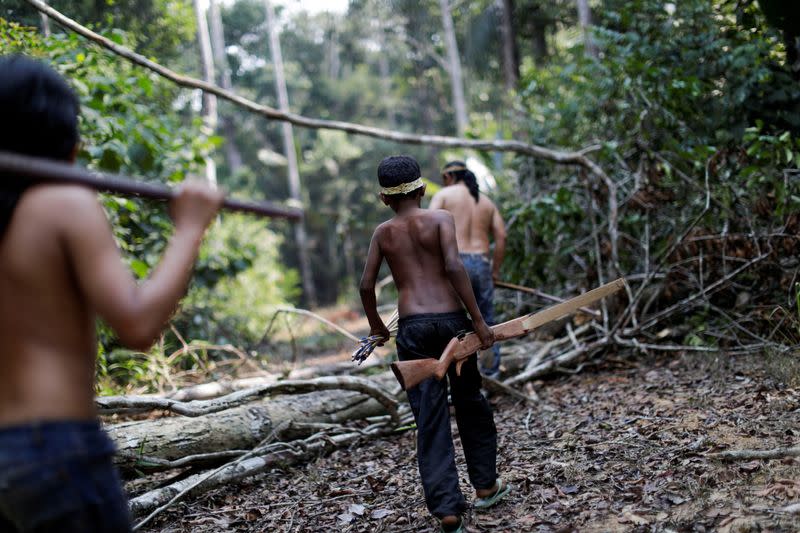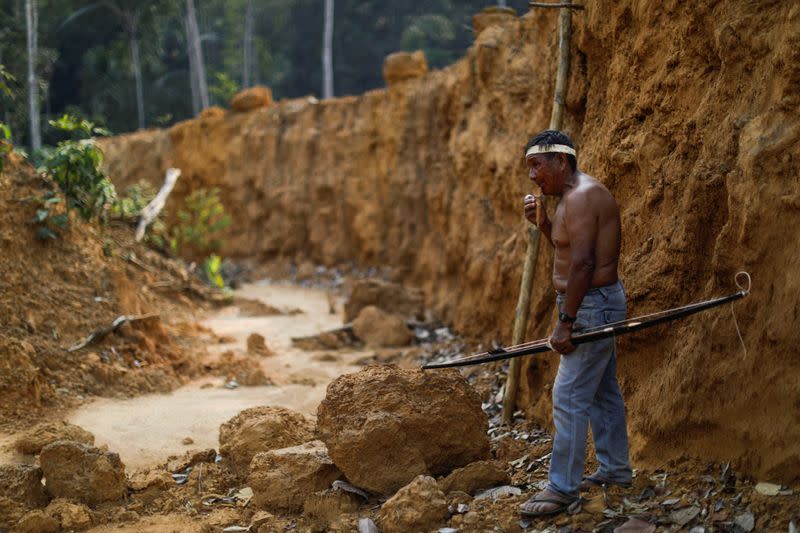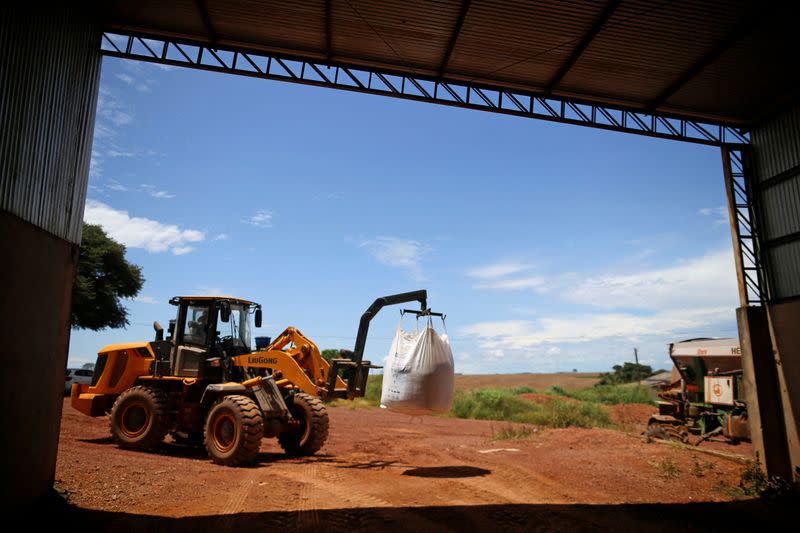Brazil Potash says Mura accept Amazon mine, prosecutors disagree
By Anthony Boadle and Ana Mano
BRASILIA (Reuters) -Brazil Potash Corp, the Canadian firm planning to build Latin America's largest fertilizer mine in the Amazon rainforest, says a local Indigenous people, the Mura, have agreed to the project, but federal prosecutors insist the community is still divided.
Brazil Potash touted the support on Tuesday, a day after a meeting between company executives, Mura leaders, local politicians and Governor Wilson Lima, who has backed the mine to bring investment and jobs to Amazonas state.
"This is a major milestone achievement in the project's development as it clearly demonstrates respect for the Mura's wishes," the company said in a statement, adding that it had completed consultations with the Indigenous community.
Federal prosecutors in Manaus, however, said support for the mine was not unanimous and provided a letter from a Mura village saying community leaders had been misled into signing meeting minutes that the company construed as approval for the mine.
"There is no unanimity among the Mura regarding the mining project," the prosecutors office said in a statement. It added that a court order suspending the mine's license was in effect.
Brazil Potash said the Mura decided to hold a vote and more than 60% of those attending from 36 communities voted in favor.
"You have a few people who decided not to support the project, but they are by far the minority," Brazil Potash Chief Executive Matt Simpson said in an interview.
"The people who disagreed with the outcome of the vote are now complaining to a prosecutor, who frankly is abusing his power," he added.
Brazil Potash is owned by CD Capital with a 34% stake, Sentient with 23% of the shares, and Stan Bharti's Forbes & Manhattan Group, a Toronto-based merchant bank that began the project, that holds 14%, along with other shareholders.
Federal judge Jaiza Fraxe reiterated last month her 2016 ruling that suspended the project until the Mura were consulted, and required licensing from federal environmental agency IBAMA rather than state entity IPAAM, which issued a license in 2015.
In her Aug. 25 decision, the judge said the project would also require congressional approval if Indigenous affairs agency FUNAI grants a Mura claim for protected reservation status for the village of Soares, which the mining project overlaps. Mining on Indigenous land is prohibited in Brazil's constitution.
The mine in Autazes, 75 miles (120 kms) southeast of the Amazonas state capital Manaus, would reduce Brazilian farmers' current reliance on imports for 95% their potash fertilizer.
The $2.5 billion potash project is expected to produce up to 2.4 million tonnes a year, about one quarter of Brazil's demand, and would take three years to develop once it gets approved.
Brazil Potash said FUNAI still needs to complete a review of the company's "Indigenous Consultation Study" before it can issue the installation license needed to start building a mine.
The company has stressed that its project is not on Indigenous land, since the Soares claim has not been formally recognized by FUNAI. Prosecutors say the mine would impact the way of life of some 15,000 Mura people.
Some of the Mura have expressed concerns that the mine could pollute rivers and scare away the game and fish they live on. Brazil Potash says the mine would have minor environmental impact because salt separated from the potash at a processing plant would be returned underground.
(Reporting by Anthony Boadle in Brasilia and Ana Mano in Sao PauloEditing by Brad Haynes, Nick Zieminski and David Gregorio)

 Yahoo Finance
Yahoo Finance 

